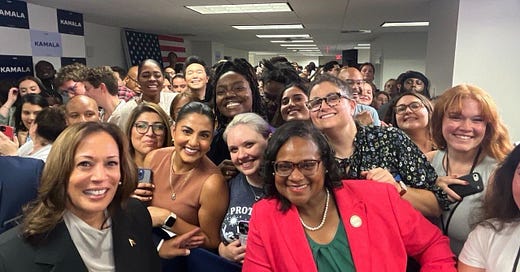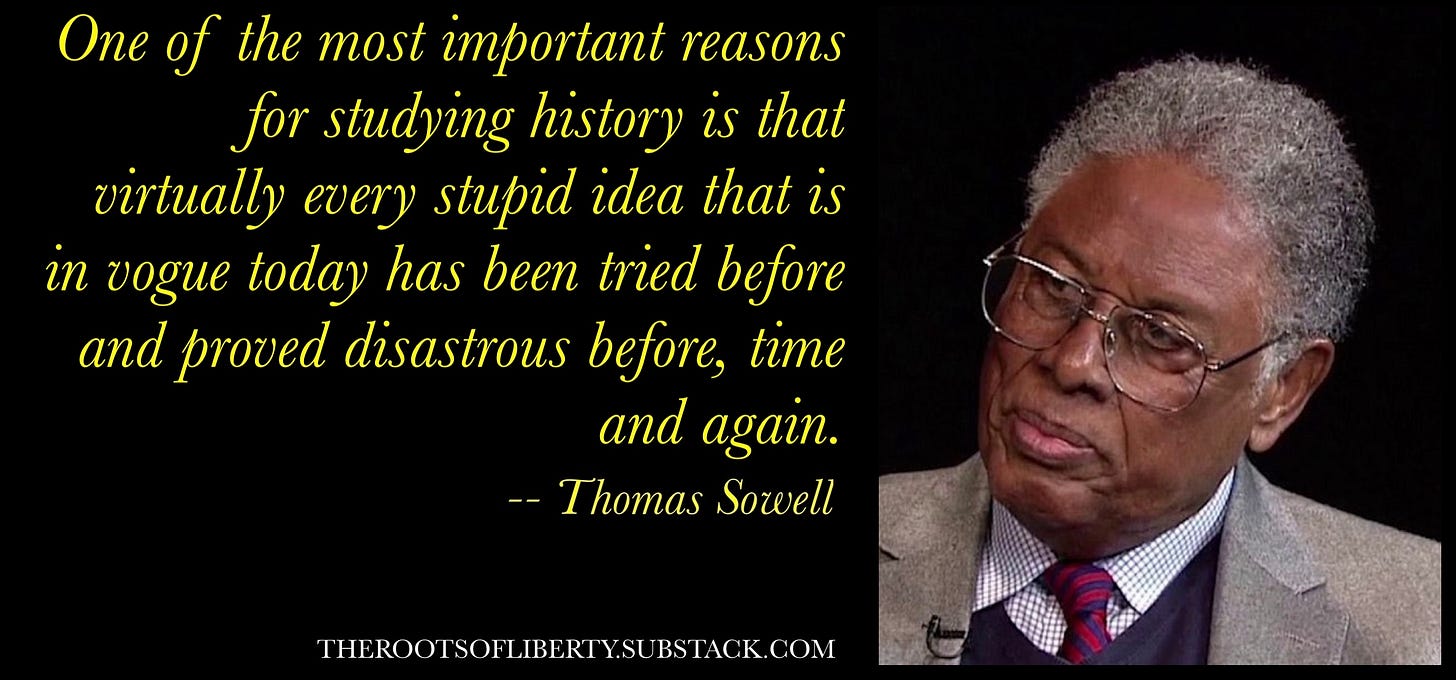Editor’s Note: Sunday posts are usually paywalled, but I ran last Sunday and today as free posts, ahead of what I consider a highly consequential election. Paid Sundays will return next week. Free subscribers, if you like my work, please consider upgrading. Thank you.
Back in 2008, the US government decided it wanted to incentivize people to use dollar coins rather than paper currency (the average life of a $1 US note is about 18 months, if memory serves, meaning that coins are more economical). So, it decided to "sell" coins to the public, at cost, shipping included.
Credit cards accepted.
Take a moment, see if you can figure out what could go wrong.
How long did it take you?
Yes, indeed, citizens figured out that they could buy thousands of dollars in coins, deposit them, and pay off the purchase when their credit card bill came due.
And earn points or other credit card rewards, by the way. Easy profit, zero risk, little fuss.
Since the government was selling the coins at face value, the government paid the credit card companies their percentage out of its own taxpayers' end.
Volumes can be filled with examples of unintended but predictable consequences of government do-goodery, and we can catalog even more "good-intentioned ideas" that ran contrary to market forces and public desires (but I repeat myself).
Here are a couple more examples, gleaned from around the Web.
Gun buy-backs, used by many "blue" cities in the hope of getting illegal guns off the street, routinely gather up garbage and inoperable firearms that have been gathering dust in attics and basements. Many turned in their junk, then took the money and bought new, working guns. One clever fella realized that he could sell 3D printed parts to New York via one of these buy-backs, and cashed out $21,000 before the beancounters caught on and changed the rules.
In 1975, the government imposed mileage requirements on automakers. They responded in some cases by making cars lighter, a change that is estimated to have caused several thousand excess collision deaths (lighter cars, all other things being equal, are less safe). And, in other cases, by making cars bigger (SUVs, crossovers, etc), so that they fell into the "light truck" category and therefore stopped being part of the passenger car computation.
In 1990, the government imposed an excise tax on luxury goods, the first since 1965. Predicted to bring in $31M in revenue, it actually brought in less than $17M. Why? Because some people opted not to buy jewelry or private planes or yachts. Close to 10,000 jobs were lost. Once unemployment benefits for those workers were factored in, the tax actually cost the government money.
Roll back to New York in 1896, when State Senator John Raines figured that the state had too many citizens being corrupted by alcoholic beverages. He wrote a law that, among other things, restricted Sunday liquor sales to hotels that served drink with the food they sold. Very quickly, saloons found space to build enough rooms to become "hotels," and the Raines Sandwich, an often-inedible object, would be ordered with every drink, immediately taken back by the server, and given to the next patron.
Then there is the (apocryphal, but illustrative) story about the government's effort to solve the cobra population problem in colonial India. Some clever government chap offered a bounty for every cobra killed and turned in by citizens. It didn't take long for people to figure out they could breed cobras and make money. When the bureaucrats figured out this was going on, they ended the program. Of course, all the breeders didn't know what to do with their bevies of cobras, so they released them. Voila, problem made worse by government. It's such a classic story that "The Cobra Effect" is in our lexicon.
Volumes can be (and have been) filled with example after example of some Best-and-Brightest using Other People's Money to try and solve a social problem (real or perceived). Reason runs a series on YouTube called Great Moments In Unintended Consequences, tagged with "sounds like a great idea! With the best of intentions! What could possibly go wrong?!"
Indeed, there are so many of these, one would have to be a total nincompoop not to learn the lessons about incentivizing behaviors, behaviors adjusting to systemic changes, human ingenuity, "first, do no harm," and "cure worse than the disease."
Now, jump to the Presidential election this week.
Behold Kamala Harris, who among her many bowls of word salad repeatedly offers one that's become a signature line.
What can be, unburdened by what has been.
I processed that bit of muddlemuck a couple weeks ago.
The underlying message is the same one progressives have been offering for well over a century, and what Thomas Sowell dubbed "The Vision of the Anointed."
At the heart of the social vision prevalent among contemporary intellectuals is the belief that there are 'problems' created by existing institutions and that 'solutions' to these problems can be excogitated by intellectuals. This vision is both a vision of society and a vision of the role of intellectuals within society. In short, intellectuals have seen themselves not simply as an elite—in the passive sense in which large landowners, rentiers, or holders of various sinecures might qualify as elites—but as an anointed elite, people with a mission to lead others in one way or another toward better lives. . . .
This is who Harris aspires to be. This is how all those around Harris - her disciples, her apologists, her clingers, her handlers, her puppet-masters, and those who figure to have her ear - see the world. Every problem can and should be solved by government, and in Harris's case by throwing Other People's Money at it.
This is the nation the Left is looking to construct. In their antipathy to our basic freedoms, including speech, religion, gun rights, property rights, economic associations and more, they show us that they believe they can run our lives better than we can. It's a mindset that is wholly at odds with America's roots and founding philosophy, and it's what a Harris administration would bring to the nation and the people.
With countless more examples of "sounds like a great idea! With the best of intentions! What could possibly go wrong?!"
The smartest people out there don't generally go into government, unless they are also sociopathic control freaks and power-lusters. This, too, is demonstrated by history, both overt (listen to what some of our elected representatives say), and by the perpetual "capture" of government power and benefit by the actual smart people.
The only remedy to this is less government. The only better government is less government. Trump isn't likely to give us a lot of that, but he did give us some of that in his last term, and his election would, if nothing else, halt some of the worst excesses of the Biden years.
Harris? She's going to be on a mission to out-do both Obama and Biden in expanding government.
I've decided on who I'd rather see in the White House in 2025, and it's not Ms. "unburdened by what has been."






Psst, hey, Congressman, I’ve got a monetary theory for you that says you can print as much money as you want and it won’t devalue the dollar or cause inflation. And, if you funnel some of that printed money into renewable energy you can create lots of constituent jobs that otherwise would have no reason for existence while reducing consumerism and population, a big win all the way around.
“Gun buy-backs, used by many "blue" cities in the hope of getting illegal guns off the street, routinely gather up garbage and inoperable firearms that have been gathering dust in attics and basements. Many turned in their junk, then took the money and bought new, working guns. One clever fella realized that he could sell 3D printed parts to New York via one of these buy-backs, and cashed out $21,000 before the beancounters caught on and changed the rules.”